The Roundup Top Ten for September 18, 2020
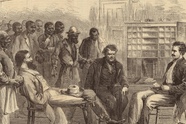
The Deep Roots of Disdain for Black Political Leadersby Carole EmbertonFrom Thomas Jefferson's writings, through the proslavery argument of the middle of the 19th century, the overthrow of Reconstruction, and the Jim Crow era, American politics has been influenced by the racist idea that Black people were incapable of exercising leadership in a democracy. |
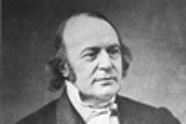
Who Owns the Evidence of Slavery’s Violence?by Thomas A. FosterA lawsuit demands that Harvard University give custody of famous images of enslaved men and women--taken without consent by a biologist seeking to demonstrate white supremacy-- to the subjects' descendents. A Howard University historian agrees, putting the images in context of other intimate violations endured by enslaved persons. |
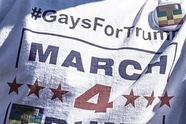
The Long History Behind Donald Trump’s Outreach To LGBTQ Votersby Neil J. YoungGay Republicans emerged as a political force in response to both radical leadership in the gay liberation movement and the rise of evangelicals as a force in the Republican party. Today they may have to decide which fight is more important. |
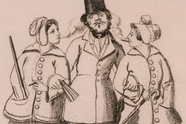
Lampooning Political Womenby Allison K. LangeBacklash against women's emancipation in the nineteenth century took to the most potent social media of the day--political cartoons--to decry feminism as a threat to civilization itself. |

The Dark Side of Campus Efforts to Stop COVID-19by Grace WatkinsWhile colleges have a legitimate interest in suppressing virus transmission on campus, it is dangerous to expand the surveillance powers of campus police. |
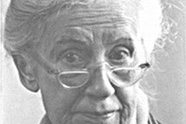
The Forgotten History of the Radical ‘Elders of the Tribe’by Susan J. DouglasThe Gray Panthers fought for the civil rights, social services and respect denied to older Americans. But they did so by challenging inequality in ways that sought alliances instead of antagonism between young and old. |

Why Do Women Change Their Stories Of Sexual Assault? Holocaust Testimonies Provide Cluesby Allison Sarah Reeves SomogyiDespite the horrific frequency of sexual abuse of women during the Holocaust and during World War II, stigmas attached to victims encouraged survivors to self-censor in their testimonies. The historical record may help to understand the behavior of victims today. |
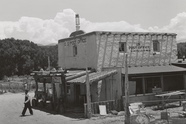
American Democracy Is in the Mailby Daniel CarpenterThe Postal Service has been a circuit of information vital to democracy, a non-exclusionary employer, and a service connecting all communities in the nation. It's also been a tool of conquest and voracious capitalism. For good and ill, the history of the USPS is the history of America. |
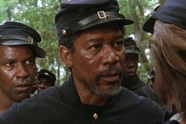
Why ‘Glory’ Still Resonates More Than Three Decades Laterby Kevin M. LevinThe film based on the story of the 54th Massachusetts Volunteer Infantry is streaming on Netflix. Kevin Levin suggests that despite the narrative license taken, the film puts the story of Black freedom fighters and the question of emancipation at the center of the story of the Civil War. |

Where Kamala Harris’ Political Imagination Was Formedby Tessa Rissacher and Scott SaulA Black cultural center in Berkeley introduced Kamala Harris to activism and the connections between culture and politics. |